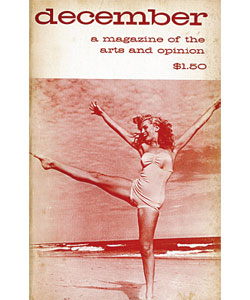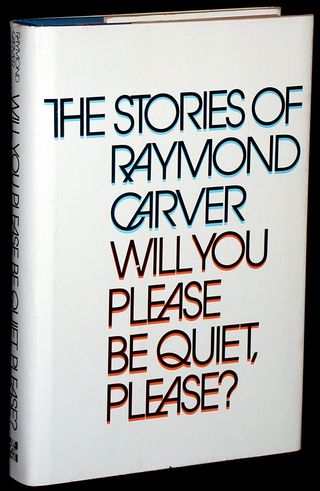Carver’s first collection had no easy road to publication. It had been rejected by many publishers, reasons that short story collections do not sell to the book being far too bleak for the commercial market. He had submitted it to several contests, including the Iowa Univ Press one, and judge Joyce Carol Oates did not choose him, much to the chagrin of several Iowa faculty members, who then offered Carver a teaching job based on the strength of his work.
Lish’s hand and influence can be detected and felt all over the book, from title changes to style edits. The first, “Fat,” was a story Lish could not get his higher ups to okay at Esquire, so Lish submitted it himself to Harper’s Bazaar–in his Lily archives are galleys for “Fat” with Lish’s continued edits, cutting to the bone of the prose. The second, “Neighbors,” was Carver’s first appearance in Esquire — its stark minimalism and “kinky” implications rumbled the quiet community of American letters. The title story was first seen in December Magazine, a respected small press journal–in fact, it was Lish who introduced Carver to Curt Johnson, December editor. That story was also included in The Year’s Best Short Stories.
Esquire — its stark minimalism and “kinky” implications rumbled the quiet community of American letters. The title story was first seen in December Magazine, a respected small press journal–in fact, it was Lish who introduced Carver to Curt Johnson, December editor. That story was also included in The Year’s Best Short Stories.
In between Esquire and Knopf, Lish had his own imprint at McGraw-Hill. One condition of his joining the firm was that his first buy would be this Carver collection. The higher ups were not keen on the book but said okay. They became keen on its when it was nominated for the National Book Award and sold many copies and made some money and gave McGraw-Hill some prestige, enough so that they offered Carver a contract for a novel, a novel Carver never wrote, if he even  began it. He needed the money.
began it. He needed the money.
It is not known what other books Lish acquired at McGraw-Hill beyond Carver’s first.
We would like you to gander at the cover–see how simple it is: The Stories of Raymond Carver. No flashy sexy cover art, no images, just a cover, which seems to be the same case with other Lish edited books–Hannah’s Airships and Ray, Mary Robison’s Days, Carver’s second collection, Janet Kaufmann’s first, etc. These books were about what was inside, not outside, in the way European publishers presented books.
Chuck Kinder’s Honeymooners is about Carver in his early years, sort of, and has a chapter about the arrival of copies of this “white duct jacket book” and how at a party people stole some and the rest were eaten up by his daughter’s dog, so that he no longer had a copy of his own to hold and behold.
